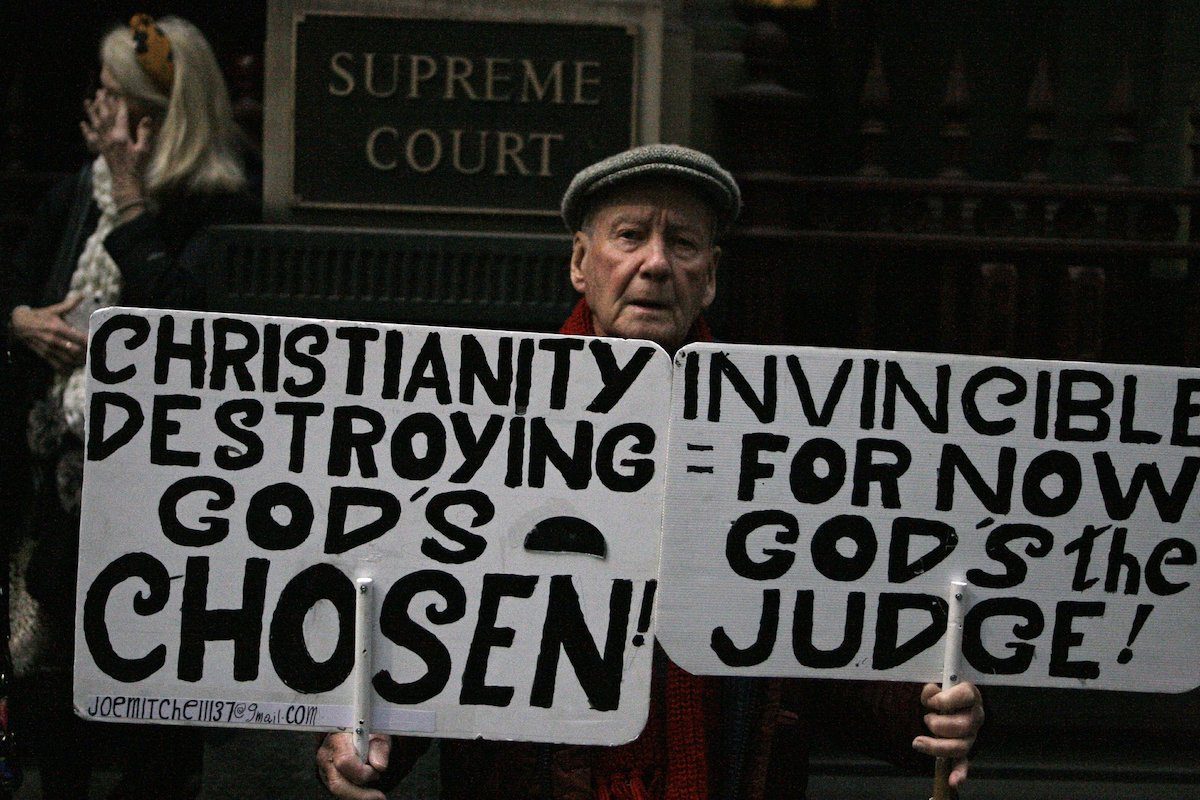One of the most peculiar characteristics of contemporary Australia is that opponents of religious expression often assume that Christian beliefs are irremediably divisive, bigoted, and irrational. As a result, Christian people and organisations can now be sued for merely living by their traditional religious beliefs.
Even Christian schools may not be allowed to teach students according to traditional values on matters of gender and sexuality.
The choice of the nation’s ruling elites to supposedly defend self-identifying “victim” groups has produced an undesirable confrontation between existing groups, where each group tends to deny having any obligation to the values of other groups.
This is certainly not about real “diversity,” but rather about government control and regulation through division and separation along the lines of religion, ethnicity and so forth.
It is simply the re-application of the Ancient Roman strategy of “divide-and-conquer” to destabilise rival civilisations by turning people against one another and, ultimately, turning everyone towards an “all-encompassing, all-inclusive” government.
As for Christianity, hostility towards its beliefs has been on a steady upward trajectory over the years. As noted by Michael Quinlan, professor and dean of law at the University of Notre Dame, Australia, “Some consider that even discussing the traditional Christian position on, for example, sexual morality, abortion, euthanasia or marriage, is hateful, bigoted and offensive.”
According to Michael Sexton SC, the Solicitor-General of New South Wales since 1998, the nation’s political establishment and intellectual elites are effectively “waging a war” on everything that might be considered even remotely based on the traditional tenets of Christianity.
“These zealots”, writes Sexton, “have a hostility to all forms of the Christian religion but especially the Catholic Church.”
In this context, the idea of “rights” can be weaponised by anti-discrimination laws that are increasingly hostile to the expression of religious opinions rather than to challenge bad behaviour. For example, when same-sex marriage activists push for the removal of anti-discrimination exemptions for religious groups who are committed to traditional forms of marriage, they effectively seek to impose their views and beliefs on those with whom they disagree.
It is often argued that an unyielding attachment to Christian values inhibits the society’s “evolution.” This sentiment has itself evolved and is now used to deny the participation of Christians in public life. As an example, I would cite the most recent state election result in Western Australia (WA).
The “conservative” party, the Liberal Party, was then led by 33-year-old Zak Kirkup, who supported an LGBTQI+ agenda, euthanasia, and extreme climate action. However, soon after suffering its worst-ever election wipe-out in March 2021, one of the few remaining members of the Liberal Party in WA’s Parliament, David Honey (who is now leader), reportedly blamed the “Christian Right” for the party’s loss.
Apparently, now one can be even denied membership to the Liberal Party for simply daring to express Christian values and principles. As reported by Sky News contributor Caleb Bond, the South Australian Liberal Party has denied the membership of about 150 Christians who applied to join the party.
“Now these people have committed no crime, apart from being Pentecostal Christians,” Bond said. “The message would seem to be clear: If you’re conservative, or you’re a Christian, the Liberal Party doesn’t want you.”
This grievous example of religious discrimination would horrify Sir Robert Menzies, Australia’s longest-serving prime minister, who once declared:
“[I]t is right that we should all in a country like this constantly test our politics … but that doesn’t mean that we can’t disagree about politics. That doesn’t mean that to be a good Christian you have to be a good Liberal or a good Country Party man, or a good Labor man. I’m saying exactly the opposite. To be a good Liberal, to be a good Labor man, to be a good Country Party man, you will be all the better if you are a Christian.”
“There is room in every political party for Christian men and women of all schools of Christian thought,” Menzies also stated.
Apparently no longer, as the South Australian Liberal Party is almost entirely run by those who objectively oppose “schools of Christian thought.”
“Bit by bit, they have taken control of every facet of the party … there are almost no conservatives left in the parliamentary Liberal Party in SA,” Bond added.
By seeking to marginalise or silence Christians who take their faith seriously, these political and cultural elites are basically rejecting the values and traditions of their own once liberal-democratic society. As noted by Dyson Heydon AC QC, who served on the High Court of Australia from 2003 to 2013, said the ruling elites were “rejecting a large part of the entire life and history of the nation—because Christianity is so integrated with the national life and history that to annihilate it is to also destroy that national life, which can live only in memory”.
Perhaps another example should be given. Stephen Chavura is an accomplished political theorist and historian who has never been accused of racial discrimination, abuse or inflammatory speech. In 2017, however, LGBTQI+ activists publicly pressured Sydney’s Macquarie University to fire him because he was also working for the Macquarie Institute, a well-known Christian political training organisation.
Activists claimed that Chavura’s position was untenable because it conflicted with the university’s official support of the LGBTQI+ agenda. He received no support from university governance and management. On the contrary, a hostile academic environment and administration eventually forced him to resign from his academic job and look for another position.
Here is another example. Byron and Keira Hordyk are a Christian couple from Western Australia (WA). They applied to become foster carers for children between the ages of zero to five. However, Byron and Keira were rejected by the foster care agency and labelled as “unsafe” due to their traditional beliefs about gender and sexuality.
As this was a clear instance of discrimination, the couple lodged a complaint with the Equal Opportunity Commission. In 2019, the Commission dismissed their complaint, arguing their claim was misconceived and not substantiated.
In Queensland, Bernard Gaynor has endured a decade-long legal battle over his conservative internet blogging and promotion of Christian views on marriage, gender, and family. An LGBTQI+ activist in New South Wales (Garry Burns) filed over 40 complaints of discrimination (36 of them within a 32 month-period) against Gaynor for the views expressed in his blog.
Defending these accusations has been deeply distressing for Gaynor, who has been forced to sell his home and has incurred over $400,000 in legal fees.
Remarkably, “Gaynor has been unable to have complaints dismissed as vexatious harassment, despite the fact that not a single discrimination action against him has even been successful.” (pdf)
The phenomenon that has emanated across Australia in recent years has been described as the “new sectarianism,” where religious values and beliefs—particularly Christianity—are deemed as meaningless, irrelevant, or even harmful in consideration of key social issues.
It is certainly not easy to be an outspoken Christian in contemporary Australia, a country where illiberal ruling elites have effectively declared war on the more traditional aspects of this historical religion.
Augusto Zimmermann is a professor and head of law at Sheridan Institute of Higher Education in Perth, Australia. He is also president of the Western Australian (WA) Legal Theory Association, editor-in-chief of the WA Jurist law journal, and a former WA law reform commissioner (2012–2017). Zimmermann is the author of “Recent Attacks on Religious Freedom in Australia,” an academic review available on the website of the Ministry of Justice of the Republic of Poland (pdf).



